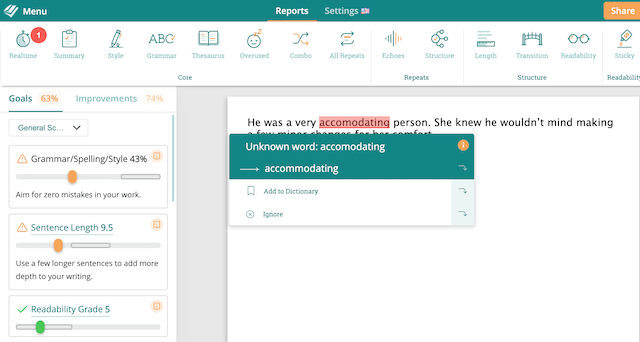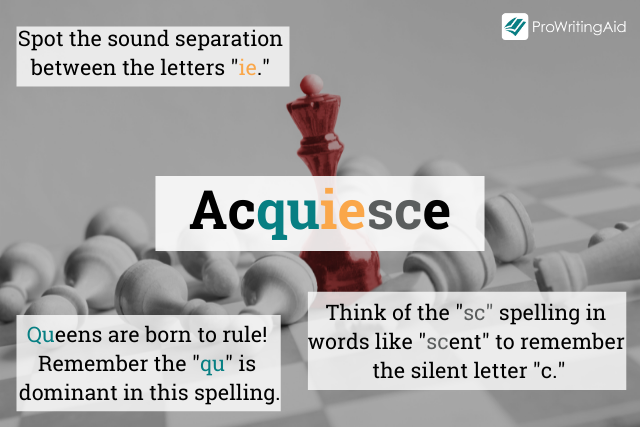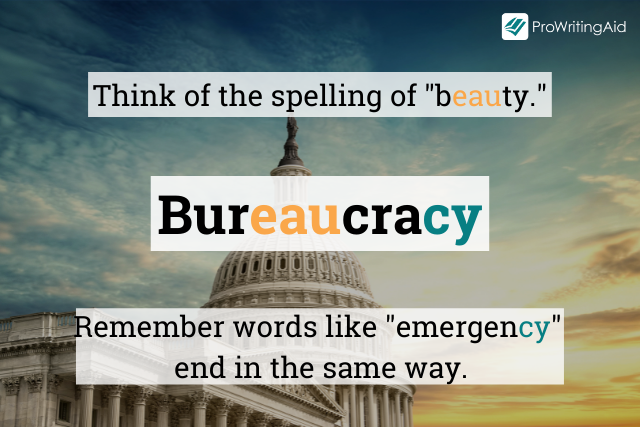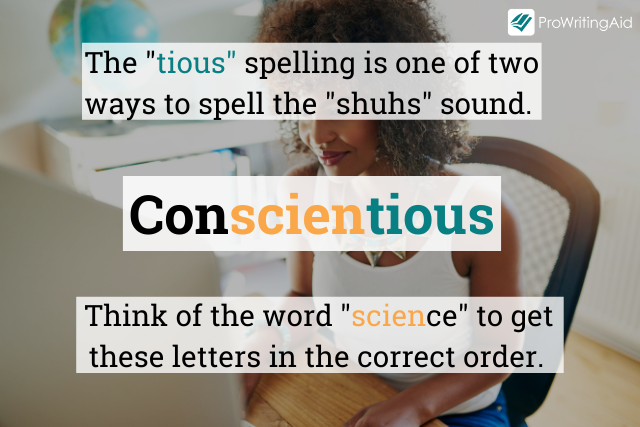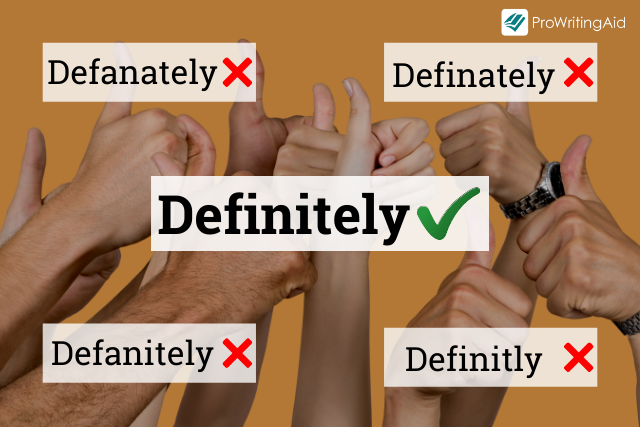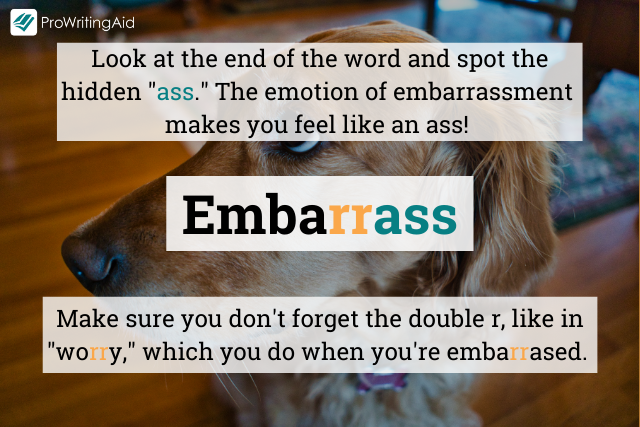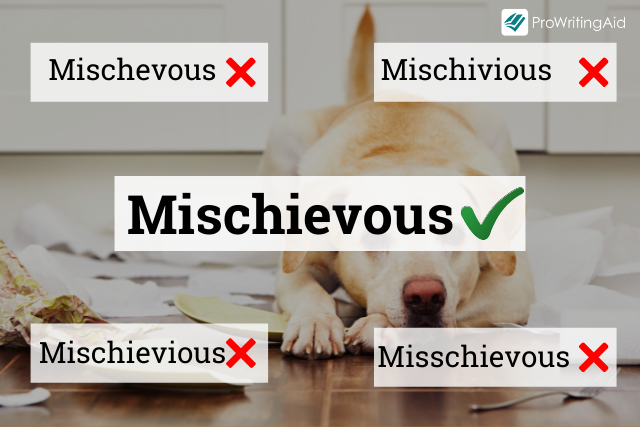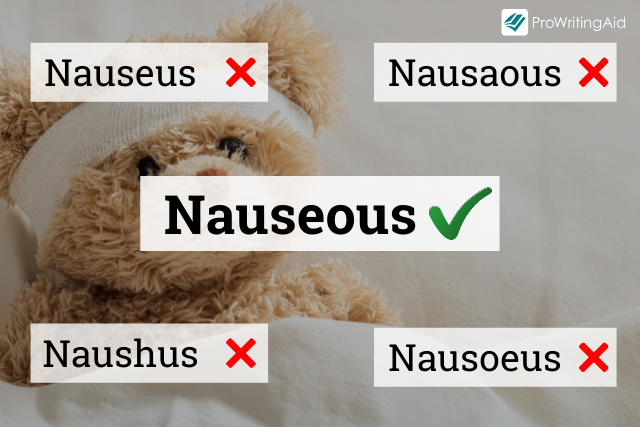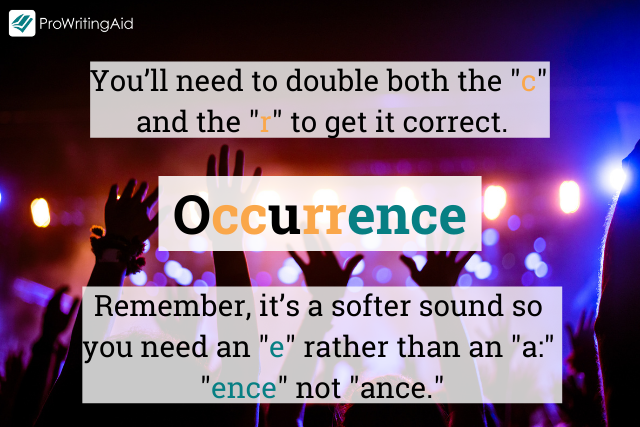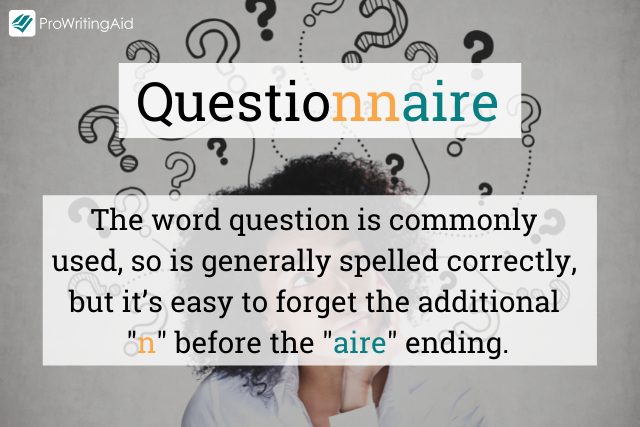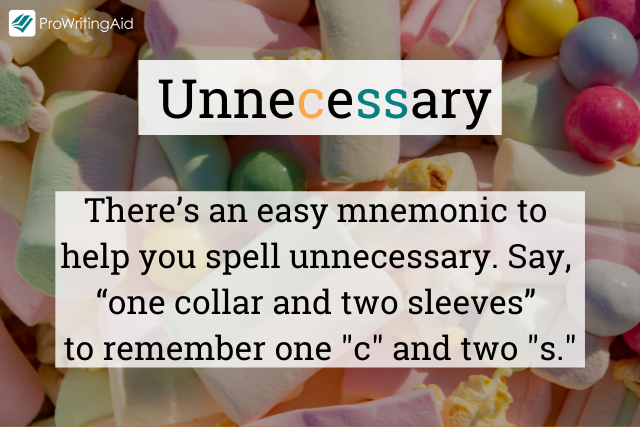Hardest Words: The English language is a funny, complicated and yet useful language that has thousands of words in its kitty. While some are very easy to learn, speak, and write, a few others are mind-numbingly hard to even understand, and don’t even get us started on pronouncing such words. And those words, which are difficult in their very nature, are rarely used by people in general. Such difficult words are only used by academicians and literature graduates.
However, keep in mind that most difficult words have much simpler and simplistic meanings, which when used in your communication can dramatically improve their meaning, tone, and texture. In this particular article on the hardest words to spell, we are going to discuss the following topics that are going to help students, teachers, writers, and general English enthusiasts learn about the hardest words in the English language:
- Why is it necessary to learn hard words in English?
- The hardest words in English to spell
- The hardest words in English to pronounce
- List of 100 hardest words in the English language
- How to teach and learn the hardest words in the English language?
- FAQs on the hardest words in the English language
Improve your English Grammar Faster with English Grammar Notes.
Why Is It Necessary To Learn Hard Words in English?
Below are a few reasons why one should learn about the hardest words in the English language:
- If you want to become a serious writer, it is practically mandatory for you to know about the hard words in the English language.
- Interviews: if you want to impress HR, great vocabulary can take you places.
- Brand communication: branding and marketing are all about communication, and the usage of sensible words can help a brand connect with its target group.
- Corporate environment: whether it’s internal customers or external, the usage of great vocabulary will always create a great impression within the office environment and it can bode well for your image.
- Entrance examinations: Exams like CAT, UPSC CSE, GMAT, XAT, NMAT, or MAT will demand good vocabulary from students to clear them. Knowing such difficult words can help them answer English grammar and comprehension questions correctly and score well.
- Now that we have understood why we should know about the hardest words in the English language, let us understand which words are the hardest words in the English language.
The Hardest Words To Spell in English
Below is a long difficult English word to spell:
- Vivisepulture
- Pococurante
- Acquiesce
- Demitasse
- Laodicean
- Chauffeur
- Liaison
- Gobbledegook
- Euonymus
- Smaragdine
- Unconscious
- Chiaroscurist
- Pharaoh
- Eudaemonic
- Ursprache
- Idiosyncracies
- Foreign
- Neighbour
- Psoriasis
- Canonical
- Xanthosis
- Equipage
- Dulcimer
- Soubrette
- Maculature
- Orient
- Suntech
- Asterisk
- Deterioration
- Wrinkle
- Library
- Honest
- Listen
- Fuchsia
- Onomatopoeia
- Paraphernalia
- Brocolli
- Weird
- misspell
- Bourgeois
- Necessary
- Increase
- Sandal
- Island
- Mischievous
- Miniscule
- Pastime
- Vacuum
- Kinkajou
- Releasable
- Cataclysm
- Coalescent
- Archetypes
- Idealist
- Primaeval
- Ozone
- Exhumation
- Occipital
- Longeron
- Oligopoly
Hardest English Words To Pronounce
Below is a list of the hardest words in English to pronounce:
- Worcestershire
- Draught
- Brewery
- Derby
- Phenomenon
- Droit
- Detroit
- Fille
- Heure
- February
- Hour
- Maintenant
- Oil
- Portefeuille
- Pneus
- Greenwich
- Although
- -Fortunate
- Quinoa
- Sixth
- Anemone
- Anime
- Colonel
- Kernel
- Asterisk
- Massachusetts
- Temperature
- Onomatopoeia
- Penguin
- Two
- Honest
- Colonel
- Irritable
- Bridge
- Numb
- Dumb
- Columns
- Isle
- Design
- Anchor
- Ascend
- Design
- Psychological
- Chaos
- Apostle
- Apostille
- Autumn
- Palm
- Bridge
- Budge
- Swift
- Seize
- Pneumoniae
- Talk
- Bomb
- Plumber
- Clothes
- Whistle
- Almond
- Knee
If you observe, in both the difficult words to pronounce and the difficult to spell in the English language, certain letters are silent, and that is what makes them tricky, especially for beginners and average-level English speakers.
List of 100 Hardest Words in the English Language
Below is a list of the 100 hardest words in the English language:
- Languid
- Poise
- Isle
- Frolic
- Disabuse
- Exponential
- Iconoclast
- Ascetic
- Inert
- Avalanche
- Feet
- Boulevard
- Mauve
- Hegemony
- Disparate
- Beguile
- Jolt
- Abeyance
- Vilify
- Fracas
- Knell
- Emblem
- Licence
- Naturally
- Shindler
- Canine
- Famine
- Library
- Fathom
- Echoes
- Inching
- Fawn
- Often
- Knowledge
- Wrinkle
- Grasp
- occurred
- Literally
- Finally,
- Laconic
- February
- Embarrassed
- Height
- business
- Foreign
- Beginning
- Magazine
- Schedule
- Arctic
- Architectural
- Grammar
- Consent
- Define
- Demonstration
- Deviate
- Diminish
- Integrated
- Contract
- Priorities
- Piece
- Succedaneum
- Soubrette
- Equipage
- Vignette
- Hydrophyte
- Crustaceology
- Ratoon
- Detect
- Thrifty
- Absurd
- Accord
- Shine
- Impede
- Rural
- Misery
- Urban
- Eulogy
- Echoed
- Wiggle
- Shaky
- Buttress
- Explicit
- Unique
- Blown
- Brown
- Guile
- Placate
- Alias
- Increase
- Staid
- epitome
- Espresso
- Fork
- Follicles
- Zephyr
- Nauseous
- Accommodation
- Miniscule
- Onomatopoeia
- Synchronous
How To Teach and Learn the Hardest Words in the English Language?
The number of ways to improve one’s vocabulary and learn the hardest words in the English language is not limited in any sense. One can follow the below methodologies to learn the hardest words in English:
- Learn and write one new word every day.
- Keep reading editorials of newspapers such as the Hindu New Indian Express or the Live Mint. These newspapers provide quality content with a high vocabulary.
- Read novels written by Nobel laureates and people from different walks of life and geography so that your mental horizon expands.
- Start writing articles and blogs yourself and use the vocabulary that you have learnt in these articles so that you get to practise the same.
The above mentioned are a few of the methodologies that one can adopt to learn the hardest words in the English language. There are other methods as well that people adopt, but one should never memorise these words because memorising them is of no value and you will not learn how, when, where, and how much to use.
FAQs on the Hardest Words in the English Language
The frequently asked question regarding the hardest words in the English Language are given below:
1. Is it necessary to learn hard words in English?
Answer: Yes, learning hard words in English will help you improve your vocabulary and communication skills.
2. How to Learn the Difficult English Words?
Answer: By reading and writing every day, one can improve their vocabulary and learn the hardest words in the English language.
3. Where are hard words in the English language used?
Answer: Hard words in the English language are mostly used in academic papers, literary works, novels, editorials, and columns in newspapers and magazines.
4. What makes a few words hard in English?
Answer: Silent letters, double letters, and long spelling can make a few words hard in the English language.
Conclusion
Most of us opt for an easier way out in life, and that is exactly what we do with English vocabulary also. All the usage of simple words can be made easier. One should start inculcating usage of difficult vocabulary in the English language so that it improves their hold and grasp of the language.
There are thousands of difficult words in the English language and you can’t learn all the difficult words, but knowing a few can help you make a good impression in interviews, essay writing competitions and entrance examinations.
There are so many words with spellings that just don’t appear to make sense in the English language. Many students have many worries when writing an essay or paper with so many hard words to spell. Although we live in an age where autocorrect is the new fad, the importance of spelling correctly can not be denied. It is always hard to spell words that do not appear the way they sound.
To aid school graders, college students, and adults alike, we have some of the hardest words to spell. This list of hard words to spell spans across words that are hard to spell for all categories of students and adults. Are you ready to go through our list of very hard words to spell? Here’s our list of top 100 hardest words to spell. Let’s explore!
Hardest Words To Spell Ever
The English language could be a real pest, even for native speakers. Sometimes, the spelling of some words seems to slip out of our heads the very times we need them, while sometimes, we just don’t know how to spell some words and make funny typos.
There are many hard English words to spell. A word may be difficult to spell for many reasons. It could be because it is from a language very different from the English language, e.g., Afrikaans, Sanskrit, etc., or because the pronunciation is very different from the spelling. A word can also be difficult if it has a silent letter or more or a peculiar double letter. Here’s a list of some super hard word to spell!
- Abacaxi
- Abgesang
- Aitch
- Autochthonous
- Chiaroscurist
- Coelacanth
- Kierkegaardian
Long Hard Words To Spell
- Antidisestablishmentarianism
- Floccinaucinihilipilification
- Pneumonoultramicroscopicsilicovolcanokoniosis
- Pseudopseudohypoparathyroidism
- Psychoneuroendocrinological
- Hepaticocholangiogastrostomy
- Spectrophotofluorometrically
Easy Words That Are Hard To Spell
Surprisingly, some of the easiest words to spell in the English language often get misspelled. The words are usually so common and have been used so commonly that it’s unbelievable to know that many can’t spell it correctly – including you! So here’s a list of common words that are hard to spell.
- Misspell
- Pharaoh
- Weird
- Intelligence
- Pronunciation
- Handkerchief
- Logorrhea
Hard Words To Spell For 6th Graders
If you are looking for a nice spelling challenge for a 6th grader, you’re in the right place. Take a look at these hardest English words to spell for 6th graders.
- Noticeable
- Vacuum
- Recommend
- Chaos
- Accommodation
- Accidentally
- Strengthen
- Pneumonia
- Acknowledgment
- Occasion
- Descendant
- Liaison
Hard Words To Spell For 7th Graders
Looking for a 7th grade selling challenge, here are some really hard words to spell for 7th graders.
- Association
- Atmosphere
- Bicycle
- Corollary
- Confetti
- Defalcation
- Bizarre
- Braggadocio
- Echelon
- Gelatinous
- Panache
- Xylem
Hard Words To Spell For 8th Graders
- Condescend
- Discernible
- Concede
- Assuage
- Contemptuous
- Imprudent
- Conscience
- Bazaar
- Ferocious
- Pistachio
- Eloquent
- Lucrative
Hard Words To Spell For 9th Graders
- Stretch
- Substantial
- Superintendent
- Pageant
- Pamphlet
- Parachute
- Nuisance
- Omitted
- Tyranny
- Unanimous
- Vengeance
- Villain
Hard Words To Spell For 12th Graders
- Absolution
- Acerbic
- Adumbrate
- Dearth
- Encumber
- Expunge
- Insidious
- Penurious
- Resplendent
- Saccharine
- Scurrilous
Hard Words To Spell For College Students
- Arctic
- Australia
- Caribbean
- Euclidean
- Presbyterian
- Teutonic
- Abysmal
- Boulevard
- Bouillon
- Bourgeois
Hard Words To Spell For Adults
- Acquiesce
- Andragogy
- Criterion
- Holistic
- Incongruous
- Juxtaposition
- Malapropism
- Obfuscate
- Onomatopoeia
- Soliloquy
There are many spelling rules in the English language that often, it’s difficult to remember which applies. Learning how to spell hard words is a bane to students and adults alike. But don’t fret, we have some proven techniques that will make you conquer most words and spell them with ease.
It may be considered rather unfortunate that the old-fashioned rote memorization method remains the best way to learn how to spell the hardest words. However, memorization techniques have gotten better, making the learning process much more bearable.
There are several mnemonic training techniques and methods used by champion spellers worldwide, such as kinetic learning. This learning technique is the association of mental concepts with a series of movements which make learning much fun and retentive than mere repetition. So here are some tips for learning how to spell hard words!
- Trace the Letters
With one hand, track the letters on your palm as you pronounce them. This method is an easy way to apply kinetic learning. You use three learning pathways that reinforce the words in the memory. These are:
- The motion of your mouth and lips
- The movement of the fingers of one hand moving
- The feeling of the motion on the other palm
For a more active learning experience, you can engage the larger body. Also, movement makes more blood flow to the brain, making it more active and receptive.
- Vocalize the Letters
Another useful tool is to vocalize the letters of the words as you learn them. Repetition words by vocalization give those words a melodic feel, imprinting them more firmly on your mind, just like nursery rhymes. If used appropriately, this leaning method will help you recall words when other methods fail.
- Design Short Study Sessions
Short study sessions are usually more effective for long-term memorization. When you take breaks, the brain can refresh itself and get ready to take a new set of words without becoming overwhelmed.
- Use Repetitive Drills
It usually takes more than one repetition to get spelling correct consistently. Repeat the words you want to learn many times until it sinks into your mind and becomes melodic.
- Group The Words
This is another effective strategy for learning how to spell hard words. Grouping words imply that you put words that follow the same spelling pattern in a group. For example, words with “-ei-“combinations will follow the same pattern. Learning all similar words at the same time will help you build association and reinforce spellings. This method will help you to categorize words, which makes memorization much more manageable.
- Read, Read, Read
One of the best methods to learn how to spell words is to increase your reading. By merely reading and consuming a wide variety of books like wildfire, you’ll become a spelling champion without knowing it. Reading simply makes all the above rules much less confusing. You’ll also be able to build your intuition level and know just when a spelling looks wrong.
- Have Fun
Learning becomes easier if you can apply fun to it. Take the words you want to memorize and see how you can weave fun into it!
So here we are! 100 hard words to spell and how to learn to spell hard words. Wishing you luck in your spelling bee and life in general! If you need homework help, just contact our English assignment helpers.

How confident are you of your spelling skills? We asked top academics and writing experts to give us their top 100 hardest words to spell they’ve seen in students’ writing assignments. Spellings is extremely importnant, not less than grammar. This is what they came up with tips and a list of 100 most difficult words.
Tips on How to Spell Hard Words
So by now, you’ve realized that you have made your share of spelling mistakes and are wondering what you need to do to be a better speller. These tips are the same ones we see young students participating in spelling competitions use when they tackle any of several hard English words to spell. Give them all a try to see which tips work best for you:
- Watch what others do.
The first thing you may want to consider doing is looking at how others utilize different techniques to spell out difficult words. Start with the kids who compete in national spelling bees to get a sense of all the different things they do spell long or rare words correctly.
- Use your palms to spell.
If you have scratch paper at hand you can always spell out the word as close as you can and then make corrections when you see what you feel can be wrong. Other than this, you can
- Consider the origins.
The origin of words is a study known as etymology which traces a word’s lineage and existence to the first known use in written form. It is especially helpful to people wanting to learn how to spell words because you can trace root words and syllables.
Hard Words to Spell for 6th Graders
If you want to challenge yourself with very hard words to spell at the sixth-grade level, then this collection might be just what you’re looking for:
- Noticeable (Correct) / Noticable (Incorrect)
- Vacuum (Correct) / Vacume (Incorrect)
- Recommend (Correct) / Recomend (Incorrect)
- Occasion (Correct) / Ocassion (Incorrect)
- Beginning (Correct) / Begginning (Incorrect)
- Government (Correct) / Goverment (Incorrect)
- Committee (Correct) / Comitee (Incorrect)
- Mississippi (Correct) / Missisipi (Incorrect)
- Ancient (Correct) / Ainshent (Incorrect)
- Culture (Correct) / Culcher (Incorrect)
Hard Words to Spell for 7th Graders
In a time when spellcheck comes with every computer writing program, we may lose sight of terms in this list of hard words to spell:
- Chaos (Correct) / Kaos (Incorrect)
- Accommodation (Correct) / Accomodation (Incorrect)
- Strengthen (Correct) / Strengten (Incorrect)
- Misspelled (Correct) / Mispelled (Incorrect)
- Deceive (Correct) / Deseave (Incorrect)
- Receipt (Correct) / Receit (Incorrect)
- Arithmetic (Correct) / Arithmatic (Incorrect)
- Embarrass (Correct) / Embaras (Incorrect)
- Constitution (Correct) / Constatution (Incorrect)
- Encyclopedia (Correct) / Encyclopaedia (Incorrect)
Hard Words to Spell for 8th Graders
Here are hard to spell words spell for middle-school teenagers, particularly those in the 8th grade. Can you spell them without using spell-check?
- Pneumonia (Correct) / Neumonia (Incorrect)
- Acknowledgment (Correct) / Acknoledgement (Incorrect)
- Accidentally (Correct) / Accidentilly (Incorrect)
- Descendant (Correct) / Desendent (Incorrect)
- Exaggerate (Correct) / Exagerate (Incorrect)
- Courageous (Correct) / Corageous (Incorrect)
- Competent (Correct) / Compitent (Incorrect)
- Patriarch (Correct) / Patrearch (Incorrect)
- Pediatrician (Correct) / Pidiatrision (Incorrect)
- Picturesque (Correct) / Picturesche (Incorrect)
Hard Words to Spell for 9th Graders
In your first year of high school, you will likely encounter some of the hardest words to spell ever. Check out this list for 9th grade:
- Cavalcade (Correct) / Cavacade (Incorrect)
- Conscientious (Correct) / Consciescience (Incorrect)
- Fluorescent (Correct) / Florescent (Incorrect)
- Martyr (Correct) / Marter (Incorrect)
- Olfactory (Correct) / Ofactory (Incorrect)
- Facsimile (Correct) / Faximile (Incorrect)
- Gruesome (Correct) / Grewsome (Incorrect)
- Incessant (Correct) / Incessent (Incorrect)
- Reservoir (Correct) / Resavoire (Incorrect)
- Spasmodic (Correct) / Spasmodick (Incorrect)
Hard Words to Spell for 12th Graders
As you advance through educational levels, you will be introduced to more reading assignments and will grow your vocabulary. These are the hardest English words to spell at the 12th-grade level:
- Acquiesce (Correct) / Aquese (Incorrect)
- Ambiguous (Correct) / Ambiguus (Incorrect)
- Stringent (Correct) / Stringint (Incorrect)
- Evanescent (Correct) / Evansent (Incorrect)
- Querulous (Correct) / Quarelous (Incorrect)
- Spontaneity (Correct) / Spontenaity (Incorrect)
- Tenacious (Correct) / Tenashus (Incorrect)
- Divergent (Correct) / Divergeant (Incorrect)
- Resilient (Correct) / Resiliant (Incorrect)
- Renovation (Correct) / Renovashun (Incorrect)
Hard Words to Spell for College Students
Technology has made learning the hardest words to spell a rare activity. This list of 10 terms is considered to be college-level. See if you’re able to spell them without help:
- Pharaoh (Correct) / Farow (Incorrect)
- Intelligence (Correct) / Inteligense (Incorrect)
- Didactic (Correct) / Didachtik (Incorrect)
- Pronunciation (Correct) / Pronounsiation (Incorrect)
- Gobbledegook (Correct) / Gobblydigook (Incorrect)
- Euphemism (Correct) / Yufamism (Incorrect)
- Abrogate (Correct) / Abrohgate (Incorrect)
- Demagogue (Correct) / Demagog (Incorrect)
- Facetious (Correct) / Faseshus (Incorrect)
- Hyperbole (Correct) / Hyperboly (Incorrect)
Common Words that Are Hard to Spell
This list includes common hard words to spell for adults. It’s surprising how so many people struggle but all you have to do is check the web for examples of this happening:
- Thorough (Correct) / Thorogh (Incorrect)
- Rhythm (Correct) / Rythm (Incorrect)
- Peculiar (Correct) / Pechuliar (Incorrect)
- Buffet (Correct) / Bufay (Incorrect)
- Liaison (Correct) / Liason (Incorrect)
- Anecdote (Correct) / Anechdote (Incorrect)
- Anonymous (Correct) / Anonimous (Incorrect)
- Collaborate (Correct) / Colaborate (Incorrect)
- Substantiate (Correct) / Substanchiate (Incorrect)
- Reconciliation (Correct) / Reckonsiliation (Incorrect)
Long Hard Words to Spell
Sometimes multisyllabic words that are hard to spell are difficult because we don’t think about silent letters that may appear anywhere. Check these out below:
- Grammatically (Correct) / Gramatically (Incorrect)
- Magnanimous (Correct) / Magnanimus (Incorrect)
- Metamorphosis (Correct) / Metamofisus (Incorrect)
- Satisfactorily (Correct) / Satisfactory (Incorrect)
- Surveillance (Correct) / Surveylance (Incorrect)
- Unanimous (Correct) / Unianomous (Incorrect)
- Reconciliation (Correct) / Reconsiliation (Incorrect)
- Procrastinate (Correct) / Procrastanate (Incorrect)
- Ostentatious (Correct) / Ostantatious (Incorrect)
- Camaraderie (Correct) / Comraderie (Incorrect)
Super Hard Words to Spell
These are really hard words to spell, even for the best English spellers in the world. As you can see most are words familiar to medical professionals and scientists, so unless you’re familiar with the field you are likely to have trouble with them:
- Syllepsis (Correct) / Sylepsis (Incorrect)
- Antediluvian (Correct) / Antidiluvian (Incorrect)
- Crustaceology (Correct) / Crustaciology (Incorrect)
- Epidemiologist (Correct) / Epidimialogist (Incorrect)
- Ophthalmologist (Correct) / Optamologist (Incorrect)
- Nephrology (Correct) / Nefrology (Incorrect)
- Entomology (Correct) / Entimology (Incorrect)
- Chiaroscurist (Correct) / Chiaraschurist (Incorrect)
- Logorrhea (Correct) / Logoria (Incorrect)
- Sacrilegious (Correct) / Sacriligious (Incorrect)
Easy Words that Are Hard to Spell
Finally, this last set includes hard words to spell that is considered easy. Take your time spelling these out because you may find yourself feeling a bit embarrassed if you make a simple mistake:
- Acquire (Correct) / Akwire (Incorrect)
- Argument (Correct) / Arguement (Incorrect)
- Maintenance (Correct) / Maintanence (Incorrect)
- Gauge (Correct) / Ghage (Incorrect)
- Memento (Correct) / Mamento (Incorrect)
- Occurrence (Correct) / Ocurrance (Incorrect)
- Questionnaire (Correct) / Questionaire (Incorrect)
- Sergeant (Correct) / Sargeant (Incorrect)
- Weather (Correct) / Wheather (Incorrect)
- Awkward (Correct) / Awkwerd (Incorrect)
What did you think of our list? Did you manage to spell the majority of them? As you can see, a lot of the mistakes come from simple mispronunciations of the words or syllables. This, of course, can be fixed with time and patience. We’re always available to assist you, so just get a hold of our customer support team and we’ll provide you with more tips and tricks to improve your spelling skills and get better writing jobs.
© 2013-2023 WritingJobz.com. All Rights Reserved.
One of the biggest challenges facing people who are trying to learn English as a second language is the thought that, there are so many hard English words to pronounce!
What makes a word hard to pronounce? Often times the
difficult words to pronounce for non-native English speakers are those that are spelled completely different from how they are pronounced.
Not all English words are pronounced phonetically. When a word is pronounced phonetically, it is pronounced how it is spelled. Take the word “know”, if it was pronounced phonetically, the “k” would be spoken. However, the “k” is not spoken and this makes “know” one of the English
language’s tricky pronunciation words.
Take a look at the
English vocabulary words below. These are hard words for kids to say, even if they are native English speakers, and that can trip up adults as well. So don’t be ashamed to look them up and practice the correct way to pronounce them.
1. Accede
How is it pronounced?
“ak-SEED”, emphasis on the second syllable
What does it mean?
To accede means to give your consent or approval to someone else’s actions. It can also mean that you agree with the opinions of a group.
2. Alias
How is it pronounced?
“AY-lee-iss”, emphasis on the first syllable
What does it mean?
An alias is an assumed name or identity.
3. Anathema
How is it pronounced?
“un-NATH-uh-muh”, emphasis on the second syllable
What does it mean?
This means that you dislike something or someone intensely
4. Anemone
How is it pronounced?
“uh-NEH-muh-nee”, emphasis on the second syllable
What does it mean?
Properly called a “sea anemone”, this is a marine animal that lives on reefs and ocean floors. It’s a sedentary animal that attaches itself to a particular area and doesn’t move, that many people think looks like a flower.
There is also a type of flowering land plants that are called anemones.
5. Antarctic
How is it pronounced?
“ant-AHRK-tik”
What does it mean?
The Antarctic is simply the South Pole.
6. Brewery
How is it pronounced?
“BROO-uh-ree”, emphasis on the first syllable.
What does it mean?
Why is it that words that have something to do with drinking are such hard words to say when drunk? This three syllable word is used for bars specializing in beer. They often brew their own beers.
7. Camaraderie
How is it pronounced?
“kah-muh-RAH-duh-ree”, emphasis on the third syllable
What does it mean?
This is the feeling of warmth and familiarity you get when around a group of trusted friends.
8. Cavalry
How is it pronounced?
“KAV-uhl-ree”, emphasis on the first syllable.
What does it mean?
Traditionally, the cavalry were soldiers on horseback. Now, cavalry is usually used to mean someone or something who offers help when you really need it.
9. Choir
How is it pronounced?
“kwah-yuhr”
What does it mean?
A choir is a group of singers. Traditionally, choirs sang religious songs during church services.
10. Colonel
How is it pronounced?
“ker-nul”
What does it mean?
A military officer.
11. Comfortable
How is it pronounced?
“KUHM-fer-tuh-buh”, with emphasis on the first syllable
What does it mean?
If you are comfortable, you are relaxed and at ease.
12. Defibrillator
How is it pronounced?
“dee-FIB-ruh-ley-ter”, emphasis on the second syllable
What does it mean?
If you watch a lot of medical TV shows, you might have seen this. It’s that device, with two paddles attached to wires that are held to someone’s chest to deliver a shock that is supposed to help restart your heart.
13. Deteriorate
How is it pronounced?
“dih-TEER-ee-uh-reyt”
What does it mean?
When someone deteriorates their condition grows worse. This can also be used to talk about a situation you find yourself in. Basically, things are getting bad.
14. Draught
How is it pronounced?
“draft”
What does it mean?
An alcoholic beverage, usually traditional kept in a keg. Like draught beer.
15. Epitome
How is it pronounced?
“ih-PIT-uh-mee”, emphasis on the second syllable
What does it mean?
Someone or something that is the perfect example of a quality or of a type.
16. Espouse
How is it pronounced?
“ih-SPOWZ”, emphasis on the second syllable
What does it mean?
When you follow or support a particular idea. Usually you are vocal and proud about your support.
17. Espresso
How is it pronounced?
“eh-SPRES-oh”
What does it mean?
When you order an “espresso” you are asking for a type of strong Italian coffee.
18. Explicit
How is it pronounced?
“ik-SLIS-it”, with emphasis on the second syllable
What does it mean?
This is not one of those hard words to say with a lisp, as you are supposed to sound like your lisping slightly. When you are explicit about something, you state it clearly and in complete detail.
19. Exponentially
How is it pronounced?
“ek-spoh-NEN-shuh-lee”, emphasis on the third syllable
What does it mean?
This is an adverb that means something is increasing rapidly.
20. Ignominious
How is it pronounced?
“ig-nuh-MIN-ee-uhs”, emphasis on the third syllable
What does it mean?
This is usually used as an adverb to describe and action that is considered disgraceful or dishonorable.
21. Isthmus
How is it pronounced?
“is-muss”
What does it mean?
This is the name of a geographical feature. An isthmus is a narrow piece of land that is located between two different seas.
22. Know
How is it pronounced?
“noh”
What does it mean?
This is a tricky word because it is an example of a word with what we call a silent “k”. To know how to pronounce “know”, you need to know it has a silent k.
23. Knell
How is it pronounced?
“nel”
What does it mean?
The rule about a silent “k” makes for tricky pronunciation words. Here’s another word where the “k” is silent and so is the second “l”. This word is used to refer to the ringing of a bell. Usually, this is a big church bell that makes a slow, loud noise.
24. Library
How is it pronounced?
“LAHY-brer-ee”, emphasis in the first syllable
What does it mean?
This is a building which contains a collection of books and other published materials.
25. Mauve
How is it pronounced?
“mohv”
What does it mean?
Mauve is a color. It is a shade of pale purple.
26. Mischievous
How is it pronounced?
“MISS-chiv-us”, with the emphasis on the first syllable.
What does it mean?
This is an adjective that basically means behaving in a way that causes “trouble”. A mischievous action is not bad or evil. It is usually playful and with no malice behind it.
27. Nadir
How is it pronounced?
“NAY-deer”, emphasis on the first syllable
What does it mean?
This means reaching the lowest point.
28. Neophyte
How is it pronounced?
“NEE-uh-fahyt”
What does it mean?
This word is used to refer to a beginner, someone who is new to a task, job, or a group.
29. Often
How is it pronounced?
“AW-fuhn”, emphasis in the first syllable
What does it mean?
If you do something “often” you do it a lot or repeatedly.
30. Onamatopeia
How is it pronounced?
“on-o-mot-o-PEE-a”, with the emphasis on the fifth syllable.
What does it mean?
This is a term for a word that refers to a sound. These words actually imitate the sound they are supposed to refer to, such as “roar” or “buzz”. It has six syllables which make it quite
a mouthful to pronounce, even for native speakers of English.
31. Otorhinolaryngologist
How is it pronounced?
“oh-toh-rye-no-lar-ing-GOL-uh-jee”, emphasis on the seventh syllable.
What does it mean?
This nine syllable word is the formal title of a specific type of medical doctor. This is a doctor who specializes in treating eye, nose, and ear conditions. The simpler way to refer to these types of doctors is as an ENT doctors.
32. Panacea
How is it pronounced?
“pan-uh-SEE-uh”, emphasis on the third syllable
What does it mean?
This refers to a remedy for illness.
33. Phlegmatic
How is it pronounced?
“fleg-MAT-ik”, emphasis on the second syllable
What does it mean?
This is someone who is easy-going. No matter what happens around them they remain calm and collected.
34. Penguin
How is it pronounced?
“peng-gwin”
What does it mean?
A penguin is a type of flightless sea bird. They are typically black and white.
35. Phenomenon
How is it pronounced?
“fi-NOM-uh-non”, emphasis on the second syllable
What does it mean?
A phenomenon is an event that is observable,
36. Puerile
How is it pronounced?
“PYOO-er-il”, emphasis on the first syllable
What does it mean?
When you think something is “purile” you believe it is foolish or childish.
37. Quinoa
How is it pronounced?
Either “KEEN-wah,” “ken-WAG, or “KEN-o-ah”
What does it mean?
Quinoa is an ancient grain that has grown in popularity in the recent decade because of its nutritional values. It’s considered a “superfood” and is actually a Spanish word.
38. Quixotic
How is it pronounced?
“kwik-SOT-ik”
What does it mean?
This is someone who is very idealistic, to the point that their ideas are impractical or unrealistic.
39. Rural
How is it pronounced?
“roor-uhl”
What does it mean?
When you say a place is “rural” you mean that it is located in the countryside.
40. Sanguine
How is it pronounced?
“SANG-gwin”, emphasis on the first syllable
What does it mean?
Someone who is sanguine is cheerful and hopeful, even if they are facing a bad situation.
41. Scissors
How is it pronounced?
“sizzors”
What does it mean?
These are two bladed cutting instruments that you use to cut into thin materials such as paper or cloth.
42. Sixth
How is it pronounced?
“siksth”
What does it mean?
When you say something is the “sixth”, your saying it is item number six in a sequence.
43. Specific
How is it pronounced?
“spi-SIF-ik”, emphasis on the second syllable
What does it mean?
This means that something is clearly defined.
44. Squirrel
How is it pronounced?
“skwi-rel”
What does it mean?
A squirrel is a bushy tailed rodent that lives in trees.
45. Staid
How is it pronounced?
“steyd”
What does it mean?
Someone who is staid is sedate and calm.
46. Successful
How is it pronounced?
“SUKH-ses-fuhl”, emphasis on the first syllable
What does it mean?
If you are successful in pronouncing this word, then you pronounced it correctly. When you are successful in something, you accomplished your aim or your purpose.
47. Surfeit
How is it pronounced?
“SUR-fit”, emphasis in the first syllable
What does it mean?
A surfeit is an extra amount of something.
48. Temperature
How is it pronounced?
“tem-PER-uh-cher”, emphasis on the second syllable
What does it mean?
This is a scientific measurement meant to gague the degree of heat that is present in an object or a substance.
49. Truculent
How is it pronounced?
“TRUHK-yeh-luhnt”, emphasis on the first syllable
What does it mean?
Someone who is truculent is quick tempered. They get into arguments or fights easily.
50. Worcestershire
How is it pronounced?
“WOOster-sher”
What does it mean?
A special sauce that originated in Worcester, a town in England. The town name is also pronounced the as “WOOster-sher”.
51. Zephyr
How is it pronounced?
“ZEF-er”, emphasis on the first syllable
What does it mean?
This refers to a breeze that is soft and mild.
Conclusion
If you want to learn how to correctly pronounce tricky vocabulary words, the answer is: Practice, practice, practice.
It’s also a really good idea to get a native language speaker as an English tutor who can listen to you say these words and help you with your pronunciation. You can also practice using these hard to pronounce words in conversation which will really help you learn them.
In English, there are many hard words to spell, but some are more difficult than most. We’ve collected 14 of the most commonly misspelled words you need to learn.
Even native English speakers can struggle with the variations of the English language. That’s why ProWritingAid is such a useful tool for catching the spelling and grammatical errors that can create a poor impression. ProWritingAid can spot differences between American and British spelling rules, find commonly confused words, and help you learn more about the English language.
These 14 words are fiendishly tricky. Using them correctly is a great way to level-up your writing abilities.
Word 1: Accommodate
How Do I Pronounce It?
-
British English: uh·ko·muh·dayt
-
American English: uh·kaa·muh·dayt
What Does It Mean?
- 1: To fit in with the needs or preferences of someone.
- 2: Provide sufficient space for a specific amount of people (typically buildings).
What Type of Word Is It?
- Verb
Example in a Sentence
- The wide doorways accommodate those with limited mobility.
- The holiday home accommodates four people.
How Can I Remember the Spelling?
Accommodate is hard to spell because it can be tricky to remember which letters you need to double. It’s common to see it misspelled as «acommodate,» «accomodate,» and «acomodate».
An easy way to remember that both the «c» and «m» need to be doubled is to think about the meaning of the word. «Accommodate» means making room, so you need to make space for those double letters!
Other Variations of This Word:
- Accommodating: She was very accommodating.
- Accommodated: Students may be accommodated in the halls of residence.
- Accommodation: The accommodation was disappointing.
Word 2: Acquiesce
How Do I Pronounce It?
- British and American English: a·kwee·es
What Does It Mean?
- To accept something without protest but reluctantly.
What Type of Word Is It?
- Verb
Example in a Sentence
- She had to acquiesce to the demands of the business.
How Can I Remember the Spelling?
Acquiesce is a truly challenging word, for native English speakers as well as those learning it as an additional language. The first letter «c» isn’t pronounced, which makes it hard to remember. Then there’s the letter «i» making an «ee» sound. Finally the end «ce» isn’t pronounced at all.
So how can you remember it?
- Queens are born to rule! Remember the «qu» is dominant in this spelling.
- Spot the sound separation between the letters «ie». They are not making the same vowel sound.
- Think of the «sc» spelling in words like «scent» to remember the silent letter «c».
Other Variations of This Word:
- Acquiesced: She finally acquiesced to the request.
- Acquiescing: She would not be acquiescing, no matter what they offered.
- Acquiescent: He was acquiescent.
Word 3: Bureaucracy
How Do I Pronounce It?
- British English: byuor·ro·kruh·see
- US English: byoo·raa·kruh·see
What Does It Mean?
- 1: A system of government in which most important decisions are taken by state officials.
- 2: Excessively complicated administrative procedure (often called «red tape»).
What Type Of Word Is It?
- Noun
Example in a Sentence
- The bureaucracy is divided into departments.
- All this bureaucracy stops us from making decisions.
How Can I Remember the Spelling?
This is a hard word to spell and would have many native English writers reaching for their dictionary.
Splitting the word into two parts can help. The first section «bureau» means an office or department. Look at the «eau» sounds. This is unusual, but it’s also found in the word «beauty.»
At the end of the word, the «cy» is making a «see» sound. That’s commonly used in English; think of words like «emergency,» «frequency,» and «democracy» that all end in the same way.
Other Variations of This Word:
- Bureau: I work for the Citizens Advice Bureau.
- Bureaucratic: This system is too bureaucratic.
- Bureaucrat: We’re fed up with bureaucrats making decisions.
Word 4: Conscientious
How Do I Pronounce It?
- British English: kon·shee·en·shuhs
- American English: kaan·shee·en·shuhs
What Does It Mean?
- 1: Someone who works thoroughly and well.
- 2: Relating to someone’s conscience (moral sense of right and wrong).
What Type Of Word Is It?
- Adjective
Example in a Sentence
- He was a conscientious worker.
- Conscientious objectors refuse to perform military service.
How Can I Remember the Spelling?
This word is difficult to spell because of the combination of vowels used both in the middle and end of the word.
Look at the «scien» part and think about the spelling of the word «science,» but remember they are pronounced differently. The «tious» spelling is one of two ways to spell the «shuhs» sound (the alternative is «cious» as used in «delicious»).
Other Variations of This Word:
- Conscience: The decision weighed on her conscience.
- Conscientiously: The painter was known for working conscientiously.
Word 5: Definitely
How Do I Pronounce It?
- British and American English: deh·fuh·nuht·lee
What Does It Mean?
- Without doubt.
What Type of Word Is It?
- Adverb
Example in a Sentence
- We are definitely going out tonight.
How Can I Remember the Spelling?
This word looks simple enough, but it’s deceptive because the vowels don’t match the pronunciation of the word. You’ll often spot people adding «a» instead of «i» in error.
It’s helpful to look at a word hidden within this one: «finite». The word «finite» means a specific, measurable amount.
Other Variations of This Word:
- Definite: We had definite plans for the weekend.
- Define: The gate defines the park boundary.
- Definitive: We have come to a definitive decision.
Word 6: Embarrass
How Do I Pronounce It?
- British English: ihm·ba·ruhs
- American English: uhm·beh·ruhs
What Does It Mean?
- Make someone feel self-conscious or ashamed.
What Type of Word Is It?
- Verb
Example in a Sentence
- He wanted to embarrass her.
How Can I Remember the Spelling?
Another deceptively simple word, «embarrass» is often misspelled because the vowels sound closer to an «ee» than an «ay.» Add to that the confusion of which letters need to be doubled.
Look at the end of the word and spot the hidden «ass.» The emotion of embarrassment makes you feel like an ass! It definitely helps you remember the spelling too.
Other Variations of This Word:
- Embarrassment: The embarrassment was too much to bear.
- Embarrassing: It was an embarrassing situation.
- Embarrassed: He felt so embarrassed by his mistake.
Word 7: Entrepreneur
How Do I Pronounce It?
- British English: on·truh·pruh·nuh
- US English: aan·truh·pruh·noor
What Does It Mean?
- A person who sets up a business.
What Type of Word Is It?
- Noun
Example in a Sentence
- She was a keen entrepreneur.
How Can I Remember the Spelling?
We often think of the word «entrepreneur» as being a French word, but looking back further into its etymology can help us remember the spelling.
The word «entrepreneur» means «to swim out» and «to capture.» What a great way to describe someone starting out in a new business.
Other Variations of This Word:
- Entrepreneurial: She showed entrepreneurial instincts.
- Entrepreneurship: The booming economy encourages entrepreneurship.
Word 8: Ingenious
How Do I Pronounce It?
- British and American English: ihn·jee·nee·uhs
What Does It Mean?
- 1: A clever or inventive person.
- 2: A clever machine or idea well suited to its purpose.
What Type of Word Is It?
- Adjective
Example in a Sentence
- What an ingenious man he is!
- The machine was ingenious, yet simple.
How Can I Remember the Spelling?
Most people go wrong with the spelling of «ingenious» when they wrongly assume it’s the word «genius» with an «in» at the start. Don’t get tricked out! Remember there’s an «o» there, like in the words, «curious» and «anxious.»
Other Variations of This Word:
- Ingenuity: It will take ingenuity to get the design right.
Word 9: Manoeuvre
How Do I Pronounce It?
- British and American English: muh·noo·vuh
What Does It Mean?
- 1: A movement or series of moves requiring skill and care.
- 2: Large-scale military exercises.
- 3: To move skilfully or carefully.
- 4: To carefully manipulate a person or situation to achieve a desired goal.
What Type of Word Is It?
- Noun
- Verb
Example in a Sentence
- The manoeuvre was challenging.
- The artillery were on manoeuvre.
- She could manoeuvre the box around the corner.
- It was easy to manoeuvre him in the meeting.
How Can I Remember the Spelling?
The French origins of this word make it hard to spell accurately. The middle of the word contains a tricky «oeu» you’ll need to learn. Don’t forget the final «vre» needs you to flip the common «er» ending more often used in American English.
Other Variations of This Word:
- Manoeuvrable: The ship was manoeuvrable despite its size.
Word 10: Mischievous
How Do I Pronounce It?
- British and American English: mis·chuh·vuhs
What Does It Mean?
- Causing or enjoying causing trouble in a playful way.
What Type of Word Is It?
- Adjective
Example in a Sentence
- She was a mischievous child.
How Can I Remember the Spelling?
We can’t blame you for getting this spelling wrong. Originally (up until around 1700 CE) it was also spelled «mischievious» and pronounced slightly differently. You’ll still hear people wrongly saying «mis-CHEE-vee-ous.»
Try remembering the word «chief» to spell the center of this word.
Other Variations of This Word:
- Mischief: He was the source of all mischief.
Word 11: Nauseous
How Do I Pronounce It?
- British English: naw·zee·uhs
- US English: naa·shuhs
What Does It Mean?
- Feeling (or causing one to feel) sick and/ or needing to vomit.
What Type of Word Is It?
- Adjective
Example in a Sentence
- The smell made her feel nauseous.
How Can I Remember the Spelling?
If you speak with a British accent, you’ll find this word much easier to spell as it’s closer to the pronunciation. When you’re writing it, try over-pronouncing the word «naw-SEE-ous» to help you remember the «se» in the middle of the word.
Other Variations of This Word:
- Nausea: A wave of nausea swept over him.
- Nauseated: She felt nauseated just looking at him.
Word 12: Occurrence
How Do I Pronounce It?
- British and American English: uh·kuh·ruhns
What Does It Mean?
- An incident or event.
What Type of Word Is It?
- Noun
Example in a Sentence
- Climate change makes extreme weather a common occurrence.
How Can I Remember the Spelling?
Most people struggle to remember whether they need a «ence» or «ance» ending for this word. Remember it’s a softer sound so you need an «e» rather than an «a.»
You might also trip up over which letters need to be doubled. You’ll need to double both the «c» and the «r» to get it correct.
Other Variations of This Word:
- Occurring: The meeting will be occurring weekly.
Word 13: Questionnaire
How Do I Pronounce It?
- British and American English: kwes·chuh·nehr
What Does It Mean?
- A written set of questions with a choice of answers used for gathering data.
What Type of Word Is It?
- Noun
Example in a Sentence
- They used the questionnaire to collect a range of views.
How Can I Remember the Spelling?
The word question is commonly used, so is generally spelled correctly, but it’s easy to forget the additional «n» before the «aire» ending.
Other Variations of This Word:
- Questionnaires: We wrote several questionnaires.
Word 14: Unnecessary
How Do I Pronounce It?
- British and American English: uhn·neh·suh·seh·ree
What Does It Mean?
- Not needed or excessive.
What Type of Word Is It?
- Adjective
Example in a Sentence
- It was an unnecessary expense.
How Can I Remember the Spelling?
Many people get confused about which letters need to be doubled when you spell «unnecessary,» but there’s an easy mnemonic to help. Say, «one collar and two sleeves» to remember one «c» and two «s.»
Other Variations of This Word:
- Unnecessaries: His income was too limited for many unnecessaries.
Resources for Improving Your Spelling
English is a difficult language to spell because it’s been influenced by so many other languages. You might feel there are more «exceptions to the rule» than words that follow a particular spelling pattern.
These resources are all great ways to improve your English writing skills:
- Vocabulary.com: Learn words using a wide range of question types and systematic practise.
- English Forward: Explore videos and activities for people learning English as an additional language.
- The Spelling Blog: Johanna Stirling’s fascinating blog explores how English works, how to learn it, and how to love it!
Whatever your spelling ability, remember accurate spelling creates a positive impression of your overall competence. It’s worth every effort to make certain it’s correct. And if you’re not sure, ProWritingAid’s comprehensive checker will do the heavy-lifting for you to ensure you always get it right.
Try ProWritingAid’s Editor for Yourself



